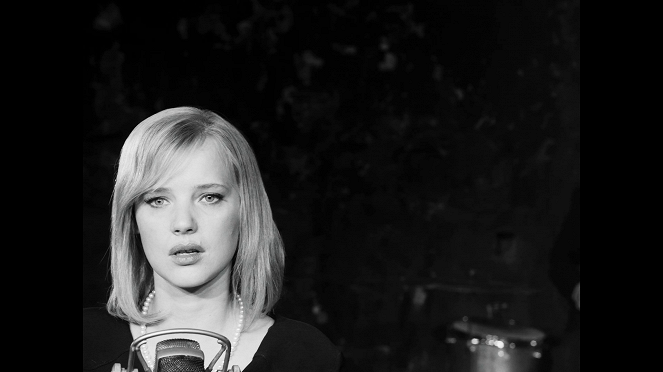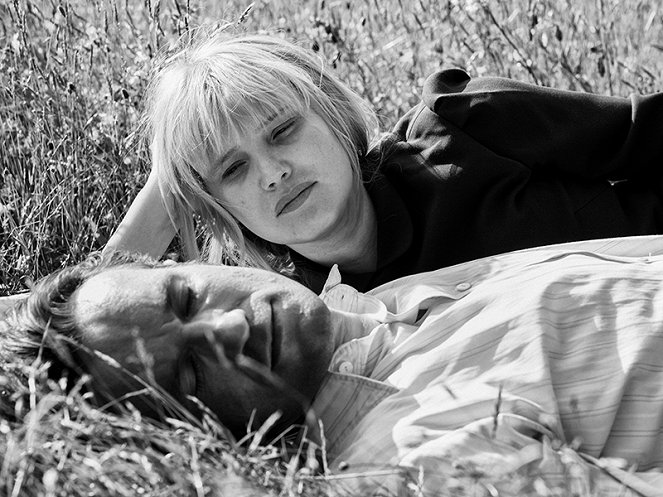Rendező:
Paweł PawlikowskiOperatőr:
Łukasz ŻalSzereplők:
Joanna Kulig, Tomasz Kot, Borys Szyc, Agata Kulesza, Cédric Kahn, Jeanne Balibar, Adam Woronowicz, Adam Ferency, Dražen Šivak, Slavko Sobin (több)Tartalmak(1)
A Hidegháborúban két lengyel zenész kapcsolata bontakozik ki előttünk, akiket egy idő után elválaszt a férfi disszidálása. A nő a kommunista rendszerben igyekszik érvényesülni, miközben szerelme a lüktető párizsi szalonokban és jazzklubokban próbál szerencsét. Európa különböző pontjain keresztezik egymás útját, hiába telnek az évek, a köztük lévő vonzalom úgy tűnik, hogy erősebb az őket körülvevő világnál. (Mozinet)
(több)Videók (5)
Recenziók (11)
Egy művészi melodráma, amelyben a főszereplő páros ismételten és ÖNKÉNT más életutat választ, mint hogy együtt legyenek, hogy ezt aztán megbánják. És csak úgy, évek során időnként találkoznak, hogy megkérdezzék egymástól, hogy vannak. Ráadásul egy érzelemmentes film, amely talán NEM is akarja, hogy átéljük a szerelmüket, és NINCS SZÜKSÉGE arra, hogy megértsük minden döntésüket. Melodráma egy párról, amely éppoly fekete-fehér, mint a szép 4:3 arányú képi kompozíciója. Ezért harmadik csillag. Hűvös film. [Cannes]
()
Polish folk songs were never so sexy. Besides that, Pawlikovski’s balladic overview of the history of music and of Europe captivated me with its high-contrast black-and-white camera work and highly economical storytelling with sharp cuts, sudden jumps in time and numerous meanings communicated via the mise-en-scène without verbal explanation, thanks to which the film is able to cover some fifteen years of history in just under ninety minutes. At the same time, the atmosphere remains consistent, while the musical style changes along with the degree of frustration felt by the protagonists, who still do not have that which they desire. Cold War is obviously a film under the spell of post-war European cinema (in addition to its academic format, this is also apparent in the number of European countries and languages represented) – not by any means only Soviet-style musicals such as Tomorrow, People Will Be Dancing Everywhere against which it is critically defined – with which it has much more in common than with reality. At the same time, however, the plot is complicated and lovers are separated by the political repression of the time that discomfited artists in communist countries had to face. The major simplification of socio-political contexts, psychological flatness of the characters and bold stylisation serve well the timeless fatalistic story of unrequited love (in whose case it does not matter too much that we are watching only certain [arche]types instead of full-blooded heroes), but as a statement on a particular time and the people of that particular time, which it also wants to be, Cold War fails for the same reason. But if you want to see a very obliging art film that does not put numerous obstacles in the viewer’s way, it is unlikely that you will see anything nicer in the cinemas. 70%
()
At the first fleeting glance, Cold War is the opposite of Ida. Though it could seem that Pawlikowski, following the success of his inconspicuous breakout film, is banking on festival success and awards, Cold War is surprising in how it differs from Ida in every respect, except for the basic foundation of a purely personal theme and the reflection of Polish historical and moral tragedy through that theme. Nevertheless, this level lies rather on another plane this time and the screen belongs predominantly to a destructive yet elemental romance. It cannot be denied that Pawlikowski has Cold War thought out in detail, thanks to which he does not slide into mannerisms or mere copying of Ida. The storytelling through music, linking the romantic and socio-political storylines with the central motif of music, and the conceptual use of the classic format and primarily the interplay of all of the above-mentioned elements in the interest of the work’s dramaturgy and its narration prove that Pawlikowski is a brilliant director who has matured in the course of his own creative renaissance. Of course, the question arises as to what he will come up with next and whether he will go in a new stylistic direction, or if he will continue to stand at the fore of festival nostalgia following the peak era of auteur filmmaking (at which Marhoul’s The Painted Bird also stands). However, it is also necessary to recognise that Cold War (like The Painted Bird) cannot be viewed in a limited way as a mere assemblage of allusions, as these represent the absolute last of the merits of this refined and emotionally pulsating film.
()
I just don’t understand how a movie, which is the least comprehensible in terms of filmmaking I have seen in years, can get into the Oscar nominations for foreign language film category. Despite the fact that the Poles are now making so many much nicer movies. Of course, this film has also some qualities, that’s without saying. The idea of telling a story in the form of fragmentary scenes that are constantly torn to reconnect under the onslaught of Polish bagpipers is a virtuous and original idea. But I still had a hard time to not switch the TV off wanting to never see this film again after yet another scene with the bagpipers or the singing girl. In the end I finished the movie, I admit it’s original but… I don’t want to ever watch it again! If Cold War wins the Oscar for foreign language film, it will not win because of the movie itself, but because the Polish cinematography is currently the best one in Europe.
()
I spent my entire youth in communist ugliness, but today I look at it like an exotic animal in a zoo somewhere. Foldyna and Kateřina Konečná probably shed a nostalgic tear at the sight of the Soviets honouring Stalin, but fortunately for the rest of us, our memories have been irretrievably swept away by time. The film thankfully doesn't get too caught up in politics and is aesthetically beautiful, I haven't seen such stunning black and white cinematography in a long time, it's a treasure these days. The love story is simple but touching, the protagonist reminded me of Léa Seydoux, charismatic and beautiful. And she sang beautifully, whether Polish folk songs, which also have something to them, or chanson. The ending is all the more crushing in its austerity, without any cheap tear-jerking.
()



Hirdetés